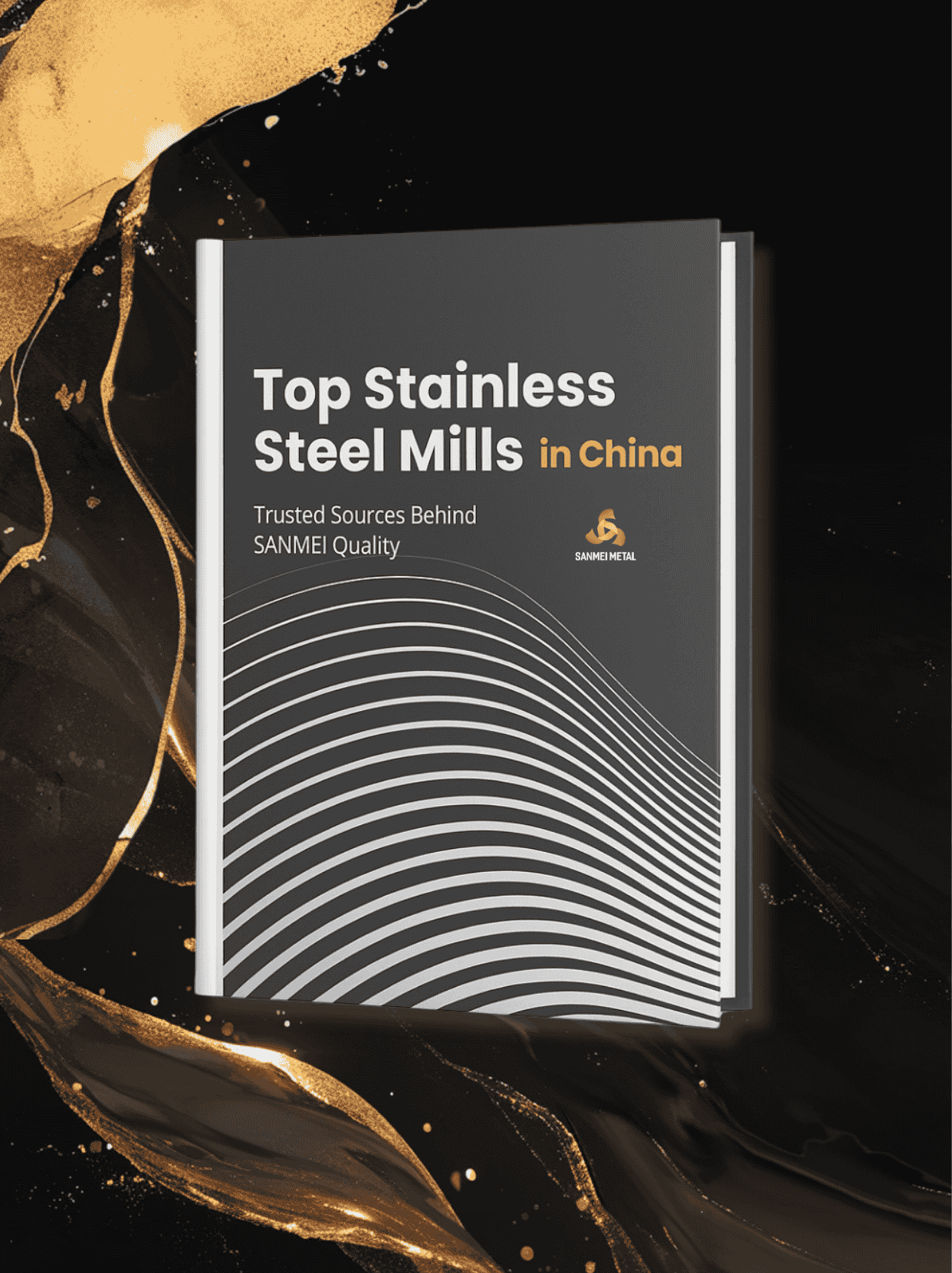
Get Your FREE Access: China’s #1 Steel Mill Dossier
Buyer-Oriented: Match mills by grade/finish/width-thickness/application
BAOWUTsingshanLiscoTisco


Overview
309S stainless steel is an austenitic chromium-nickel stainless steel with improved corrosion resistance and heat resistance compared to 304 stainless steel. It is a variant of 309 stainless steel with reduced carbon content, making it suitable for welding applications. The lower carbon content minimizes the precipitation of carbides in the heat-affected zone near the weld, which can lead to intergranular corrosion in certain environments.
General Properties
309S stainless steel offers excellent resistance to repeated heating up to 980°C, with high-temperature strength and resistance to oxidation and carburization. It is known for its good formability and weldability, making it ideal for applications requiring complex shapes and structures.
Applications
309S stainless steel is widely used in furnace materials, extensively applied in boilers, energy sectors (nuclear, fossil fuels, fuel cells), industrial furnaces, incinerators, heating furnaces, chemical, and petrochemical industries. It is suitable for components that require exposure to high temperatures and corrosive environments.
Corrosion Resistance:
309S stainless steel exhibits excellent corrosion resistance in most environments, including those with high acidity or moisture exposure, such as seawater or salt spray areas. Its high chromium content (22-24%) provides出色的耐腐蚀性.
Heat Resistance:
309S stainless steel can withstand temperatures up to 1000°C without adverse effects on its mechanical properties, making it perfect for applications involving high temperatures, such as boilers or ovens.
Machinability:
309S stainless steel is relatively easy to machine due to its good ductility and formability. However, it work-hardens rapidly, so tools should be kept sharp, and chip breakers should be used.
Welding:
309S stainless steel has good weldability and can be joined using various conventional welding methods. Post-weld heat treatment may be necessary to prevent cracking and to restore corrosion resistance, especially in heavy-section components.
Hot Working:
Hot working can improve the toughness and wear resistance of 309S stainless steel. It is recommended to perform hot working in the temperature range where the material is most ductile.
Cold Working:
Cold working increases the hardness and strength of 309S stainless steel while also improving its surface quality and dimensional accuracy. However, it may reduce ductility and toughness, so annealing may be required after cold working to restore these properties.
Annealing:
Annealing is used to soften the steel, improve machinability, and prepare it for further heat treatment processes. It involves heating the steel to a suitable temperature followed by slow cooling.
Tempering:
Tempering is used to reduce brittleness and internal stresses after hardening. It involves heating the steel to a specific temperature and then cooling it slowly.
Hardening:
309S stainless steel can be hardened to achieve high hardness levels through a process of heating and rapid cooling (quenching). However, due to its austenitic nature, it does not respond to hardening in the same way as martensitic steels.
| Property | Yield Strength, min. (ksi) | Tensile Strength, min. (ksi) | Elongation, min. (%) | Hardness, max. (Rb) |
| 309S | 205 | 520 | 40 | 187/90/200 |
| Property | Value |
|---|---|
| Density | 7.98 kg/dm³ |
| Melting Point | 1397-1453°C |
| Specific Heat Capacity | 0.50 kJ/(kg·K) at 0℃ to 100℃ |
| Thermal Conductivity | 15.5 W/(m·K) at 100℃, 18.6 W/(m·K) at 500℃ |
| Coefficient of Thermal Expansion | 14.9 x 10^-6/K at 0℃ to 100℃, 18.0 x 10^-6/K at 0℃ to 500℃ |
| Electrical Resistivity | 0.78 Ω·mm²/m at 20℃ |
| Elastic Modulus | 193 kN/mm² at 20℃ |
Grade | C | Si | Mn | P | S | Cr | Ni |
|---|---|---|---|---|---|---|---|
309S | ≤0.08 | ≤1.00 | ≤2.00 | ≤0.045 | ≤0.030 | 22.00-24.00 | 12.00-15.00 |

Withstands temperatures up to 1000-1100°C (1832-2012°F).

Excellent resistance to oxidation and corrosion in a wide range of environments.

Retains strength and toughness at high temperatures, making it ideal for heat exchangers and furnace components.

| Type | Width (mm) | Weight (MT) | Thickness (mm) | ||||
| 309S Coil | 1000, 1219, 1240, 1500 or Customized | 3-10 | 0.15-3.0 | ||||

| Type | Width (mm) | Length (mm) | Thickness (mm) | |||||||||
| 309S Sheets | 1000, 1219, 1240, 1500 or Customized | 2000, 2438, 2500, 3000, 3048 | 0.3-3.0 | |||||||||
We are committed to giving our customers the best and highest quality service to ensure our customers' satisfaction.









Certified by prestigious institutions and committed to adhering to international standards in every aspect.




Customer feedback is the most authentic reflection of a company's quality.
View more technical references from Sanmei Metal regarding stainless steel coils and stainless steel sheets.
Headquarters:
Creating Center, No.142, Yuhe Road, Lecong Town, Shunde District, Foshan City, Guangdong Province, China. 528315
Factory: Liyuan Logistics City, Chencun Town, Shunde District, Foshan City, Guangdong Province, China. 528313
Australia Local Support Base: (Yatala, QLD) – Coming 2026